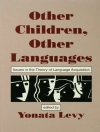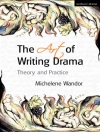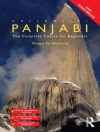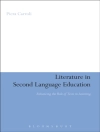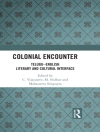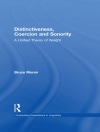In
Revolution in Poetic Language, Julia Kristeva explicates her foundational distinction between the semiotic and the symbolic and explores their interrelationships. Linking the psychosomatic to the literary and the literary to a larger political horizon, she questions the premises of linguistic, psychoanalytic, philosophical, and literary theories.
Зміст
Translator’s Preface
Introduction, by Leon S. Roudiez
Prolegomenon
Part I. The Semiotic and the symbolic
1. The Phenomenological Subject of Enunciation
2. The Semiotic Chora Ordering the Drives
3. Husserl’s Hyletic Meaning: A Natural Thesis
4. Hjelmslev’s Presupposed Meaning
5. The Thetic: Rupture and/or Boundary
6. The Mirror and Castration Positing the Subject as Absent from the Signifier
7. Frege’s Notion of Signification: Enunciation and Denotation
8. Breaching the Thetic: Mimesis
9. The Unstable Symbolic. Substitutions in the Symbolic: Fetishism
10. The Signifying Process
11. Poetry That is Not a Form of Murder
12. Genotext and Phenotext
13. Four Signifying Practices
Part II. Negativity: Rejection
14. The Fourth ‘Term’ of the Dialectic
15. Independent and Subjugated ‘Force’ in Hegel
16. Negativity as Transversal to Thetic Judgment
17. ‘Kinesis, ‘ ‘Cura, ‘ ‘Desire’
18. Humanitarian Desire
19. Non-Contradiction Neutral Peace
20. Freud’s Notion of Expulsion Rejection
Part III. Heterogeneity
21. The Dichotomy and Heteronomy of Drives
22. Facilitation, Stasis, and the Thetic Moment
23. The Homological Economy of the Representamen
24. Through the Principle of Language
25. Skepticism and Nihilism in Hegel and in the Text
Part IV. Practice
26. Experience Is Not Practice
27. The Atomistic Subject of Practice in Marxism
28. Calling Back Rupture within Practice: Experience-in-Practice
29. The Text as Practice, Distinct from Transference Discourse
30. The Second Overturning of the Dialectic after Political Economy, Aesthetics
31. Madoror and Poems, Laughter as Practice
32. The Expenditure of a Logical Conclusion: Igitur
Notes
Index
Про автора
Julia Kristeva is professor emerita of linguistics at the Université de Paris VII. A renowned psychoanalyst, philosopher, and linguist, she has written dozens of books spanning semiotics, political theory, literary criticism, gender and sex, and cultural critique, as well as several novels and autobiographical works, published in English translation by Columbia University Press. Kristeva was the inaugural recipient of the Holberg International Memorial Prize in 2004 “for innovative explorations of questions on the intersection of language, culture, and literature.”



